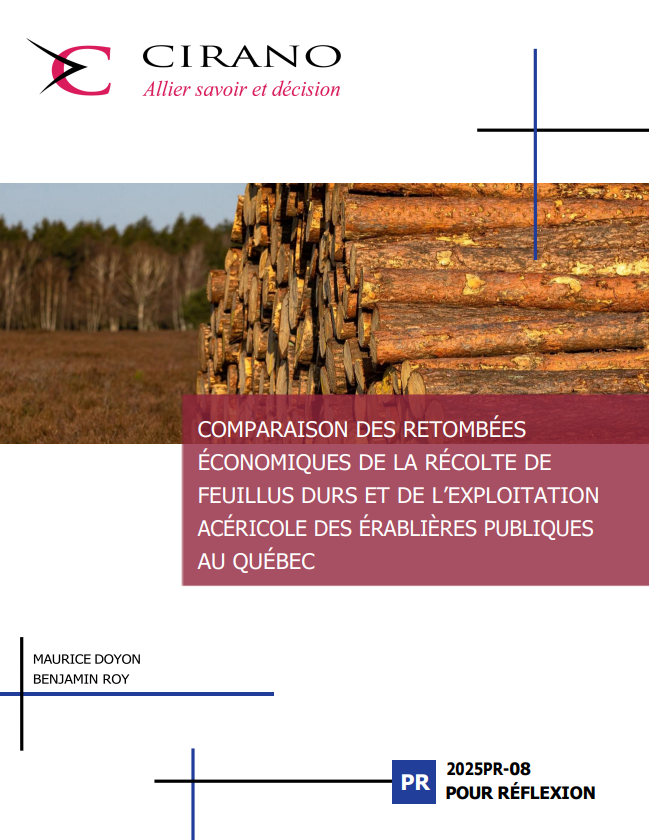Comparaison des retombées économiques de la récolte de feuillus durs et de l’exploitation acéricole des érablières publiques au Québec
Quebec’s public domain accounts for 80% of the province’s accessible productive forest and spans over 275,000 km². As stipulated in the Act respecting the lands in the domain of the State, the Minister exercises property rights over this territory, which enables, among other things, the issuance of permits for forest resource exploitation. Sugar maple stands located on public land are particularly sought after. They are coveted both for maple sap harvesting and for the production of timber destined for processing, leading to frequent tensions between the forestry and maple syrup sectors.
In this paper, the authors demonstrate that maple syrup production generates greater economic benefits compared to the harvesting and processing of hardwood species, even when the least favourable scenario for maple syrup production is compared to the most favourable scenario for the hardwood sector. This marginal dominance of maple syrup production suggests that an optimal resource allocation should favour maple syrup production over hardwood forestry. The paper also highlights the potential for integrating maple syrup production with conservation efforts and the establishment of protected areas, which aligns with Quebec’s biodiversity objectives.




